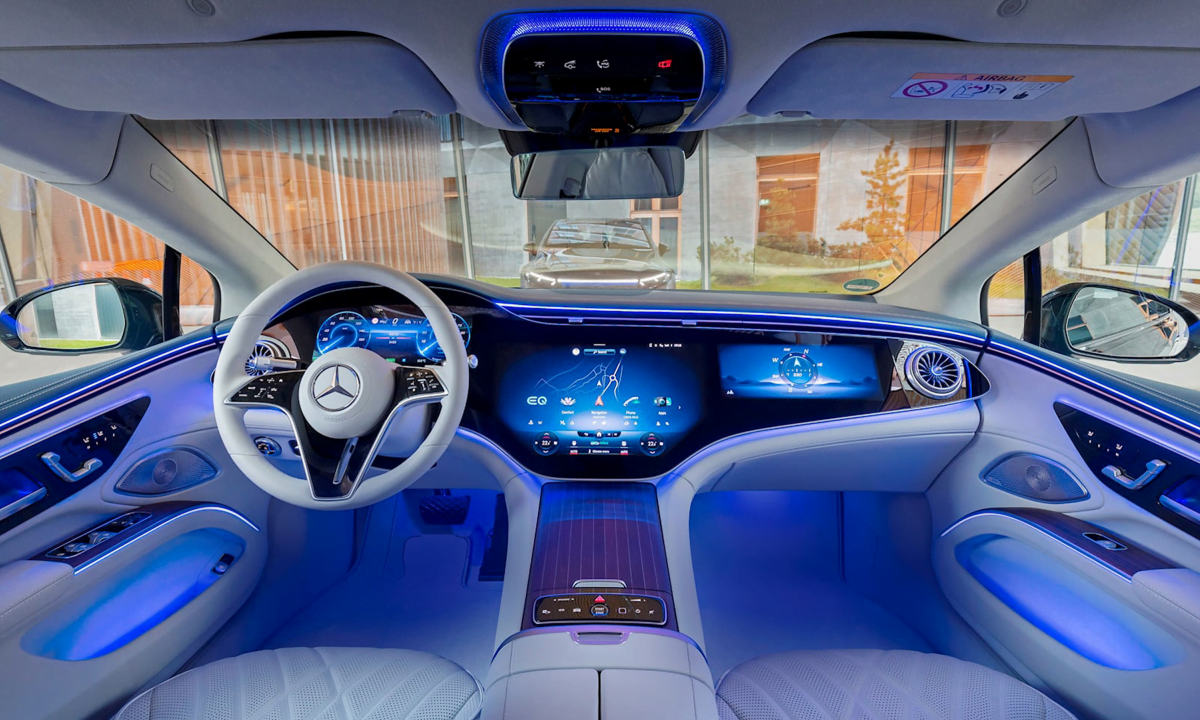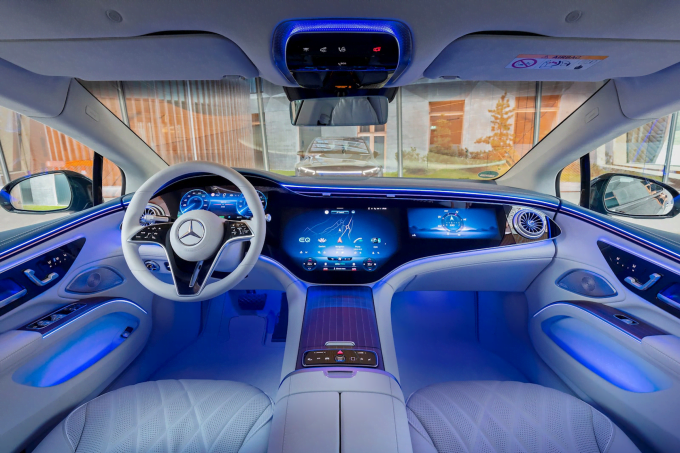
According to research results released this week by the non-profit Mozilla Foundation, the automotive sector received an F – the lowest score for data privacy. Report finds most major manufacturers admit they could sell customers’ personal information, half say they would share that information with government or law enforcement without a warrant of the court.
“The ubiquity of sensors in cars, from telematics connections to fully digitized dashboards, is turning them into extraordinary data collection hubs,” said Jen Caltrider, lead researcher. “Cars are fully equipped with everything that can collect information. They have microphones to pick up sensitive conversations and also have cameras from all directions.”

Large screen system inside the Mercedes MBUX Hyperscreen model. Photo: Mercedes
The Mozilla Foundation aggregates the data collection capabilities of dozens of product categories such as cars, wearables, smart speakers, security cameras, camera doorbells, and smart connected home appliances since 2017. This organization also surveys via email and analyzes the ability to collect and use top data from the world’s top 25 auto brands.
As a result, none of the 25 car brands met the minimum privacy standards set by the Mozilla Foundation, such as encrypting all collected information or not providing information to third parties. Meanwhile, 37% of health monitoring applications do this.
In addition, the report also shows that 19 car manufacturers say they can sell users’ personal data. Half of them can share this information with government or law enforcement if “requested”. Most do not provide the option to delete collected data, except for two companies: Renault and Dacia. As for the question of data encryption, “most either ignore it or give unsatisfactory answers.”
Some companies also collect driver’s license numbers, immigration status, race, sexual orientation, and even “infer” based on this data to create profiles “reflecting preferences and characteristics.” ,psychological trends, tendencies, behaviors, attitudes, of users”.
Elon Musk’s Tesla is also ranked by the research team as one of the units with high indexes in data collection. On this company’s electric vehicles, if the user refuses to provide personal information, the vehicle immediately sends a real-time warning, that operations may lead to “reduced functionality, serious damage or inability to work”.
The companies on the list declined to comment.
In the past, many auto companies were discovered to have leaked data, affecting millions of users. In 2021, Volkswagen and its subsidiary Audi exposed the unencrypted information of 3.5 million customers; Toyota leaked data of 2.15 million customers in the period 2013-2023; or information of 1.6 million Mercedes-Benz customers was also exposed in June 2022.
“More and more cars are being eavesdropped,” Albert Fox Cahn, a technology expert at Harvard University, told Business Insider . “Users are paying more for in-vehicle electronics, but they are increasingly a data collection tool.”
According to the Alliance for Automotive Innovation – the trade group representing automakers in the US, car companies still prioritize “the goal of protecting consumer privacy.” However, this organization also requires the federal government to develop a separate law instead of “patchwork” as currently.
Bao Lam (according to Business Insider )

Leave a Reply
You must be logged in to post a comment.